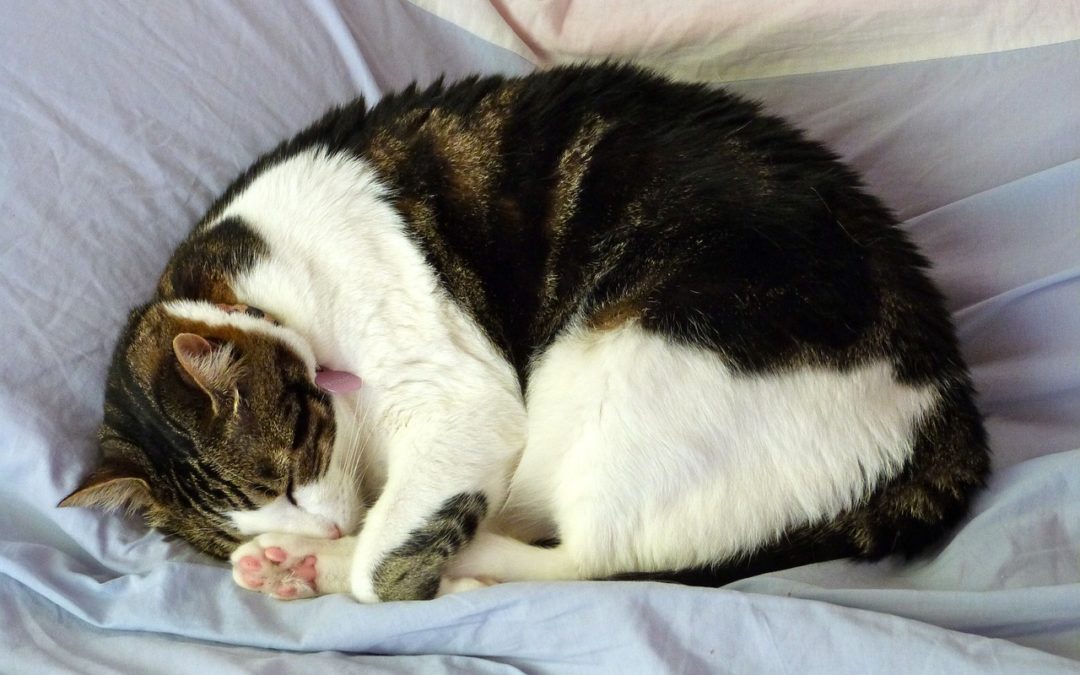Domestic cats can rarely be accused of overexerting themselves. Cats seem genetically programmed to sleep. In fact, cats can sleep as much as 16 hrs a day, and older cats may sleep 18-20 hrs a day!
Why all this sleep?
Sleeping helps cats conserve energy, but they probably are not “sleeping” as much as you think.
Sleeping, snoozing or “resting their eyes” — while all of these forms of sleeping may look alike, about 75% of a cat’s sleeping time is in “light sleep.” They are easily awakened when they need to be (for example, to protect themselves or to take advantage of a meal). You can recognize when cats are in light sleep because their ears twitch and respond to sound even if their eyes do not open. Cats are even capable of sleeping when they are in a sitting position.
Cats do sleep deeply sometimes. About 25% of their sleeping time is spent in very deep sleep. Some older cats may sleep deeply as much as 40% of the time.
Sleeping behavior
One of the things I still enjoy most is watching my cats as they dream. They seem to run in their sleep at times and often chatter and vocalize— they may be chasing an imaginary butterfly or lizard.
It is common for cats to snore when sleeping. My own cat will often cover his eyes, and in a few minutes, he is sawing proverbial logs.
All of these sleep associated behaviors of cats are normal to one degree or other. It is important as with other behaviors to be familiar with what is normal for your cat. Changes in sleep habits can be associated with a variety of factors but should be observed and evaluated by your veterinarian as part of your cat’s physical evaluation.
If you have any questions or concerns, you should always visit or call your veterinarian — they are your best resource to ensure the health and well-being of your companions.






